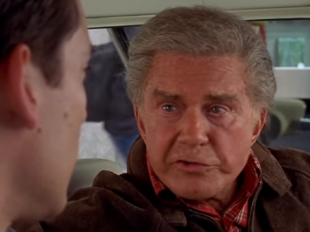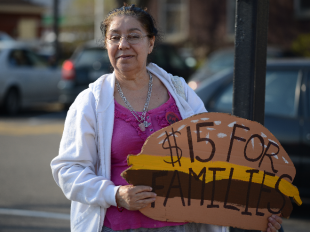The Declaration of Independence states that our inalienable rights include “life, liberty, and the pursuit of happiness.” Life and liberty are easy to understand, but that last phrase is less intuitive. How can people have a right to strive for happiness?
Learn More
Uniting to Fight Poverty: A TED Talk
How do we solve problems like poverty with so much political polarization?
Welcome to the Pursuit
To pursue our happiness, to achieve our liberty, and indeed to find fulfillment in our lives, we must start with a moral consensus, a fundamental truth around which we all revolve. Think of an atom. The outer field of electrons is full of chaotic activity. Electrons are rapidly orbiting and moving in a constant buzz. What contains that chaos and gives it structure? The fact that the whole chaotic cloud orbits one central nucleus.

Tom Price, an HHS Secretary Focused on Helping People Work?
Donald Trump named Rep. Tom Price, the congressman from Georgia who is currently chairman of the House Budget Committee, to lead the Health and Human Services (HHS) Department, which is fitting since Price is a doctor, a rarity in the position, but important because Price is also a strong proponent of eliminating waste and reducing the misuse of taxpayer money. The cherry on top of the selection is what Price’s nomination, and a few others, means for anti-poverty programs, or more specifically, government’s role in helping people who actually are in poverty.
read more
Does the Federal Government Have to Be in Washington?
Want to decentralize the federal government, start by decentralizing where the federal government resides. That’s the suggestion from economist Paul Kupiec, who suggests that there’s no real reason why all federal agencies need to be in the nation’s capital.
read more
Fake News May Distract, But It Doesn’t Rig Elections
“Fake news is not a technical glitch.” This sentence is the headline of a recent article about the hysteria that has enveloped the nation over the “unexpected” presidential outcome. It also is a simple explanation that clears up much of the confusion being disseminated since the Nov. 8 vote.
read more
Romantic Notions: Why People Revere Karl Marx When They Know He’s Wrong
Political economics is not for the faint of heart, as Deirdre McCloskey has learned from experience. The distinguished professor of economics, history, English, and communication at the University of Illinois at Chicago, not only has studied Karl Marx, but has looked...
read more
Giving Thanks This Thanksgiving to the Invisible Hand and The Grocery Store
Here’s another “aha” moment to remind us why we may want to be giving thanks this Thanksgiving to economic liberalism as well as the grocery store. Mark Perry of the Carpe Diem blog notes that in real dollars the cost of a Thanksgiving turkey in 2016...
read more
Smugness vs. Humility: What Works in Conservative and Progressive Leadership
Remember the letter that George H.W. Bush wrote to Bill Clinton after the 1992 presidential election? He left it in the desk at the Oval Office for Clinton to receive post-inauguration. The letter was considered the mark of civility in that a defeated Bush wished...
read more
How Trump Can Improve Antipoverty Programs
With the presidential election in the rear view mirror, Washington and the rest of the country are now turning attention to what President Trump will mean for public policy. What would Trump do for antipoverty programs? Given Trump’s early focus on relieving...
read more
Doing What You Love Has Big Social Payoff
It would appear that what TPOH has been saying is finally catching on: doing what you love with people you care about has a greater emotional – and social – payoff than just accumulating stuff. Attachment to people, not products, is more fulfilling.
read more
Infrastructure Investment to Make America Even Better
Infrastructure investment through private-public partnerships (PPPs) is one area that could Make American Great Again. Many Americans agree that it could help both the economy and Americans’ day-to-day lifestyles. Now, it’s just a question of whether America has the will to get them done.
read more
Edmund Burke: The Link Between Economic Liberty and Human Flourishing
Eighteenth century political economist Edmund Burke was fully aware that many people were not exposed to opportunity to improve their lives, and he wasn’t a huge believer that a high tide would lift all boats. But he was hugely skeptical of the ability of some so-called equalizing central force to intervene and correct course. In other words, he opposed government intervention in economic exchange.
read more








